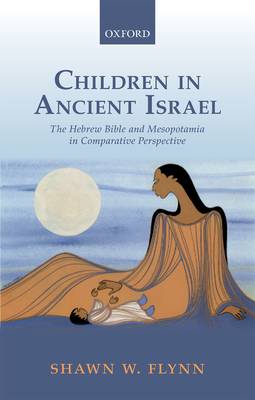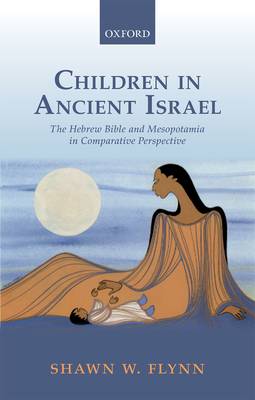
Door een staking bij bpost kan je online bestelling op dit moment iets langer onderweg zijn dan voorzien. Dringend iets nodig? Onze winkels ontvangen jou met open armen!
- Afhalen na 1 uur in een winkel met voorraad
- Gratis thuislevering in België vanaf € 30
- Ruim aanbod met 7 miljoen producten
Door een staking bij bpost kan je online bestelling op dit moment iets langer onderweg zijn dan voorzien. Dringend iets nodig? Onze winkels ontvangen jou met open armen!
- Afhalen na 1 uur in een winkel met voorraad
- Gratis thuislevering in België vanaf € 30
- Ruim aanbod met 7 miljoen producten
Zoeken
Children in Ancient Israel
The Hebrew Bible and Mesopotamia in Comparative Perspective
Shawn W Flynn
Hardcover | Engels
€ 169,45
+ 338 punten
Omschrijving
Flynn contributes to the emerging field of childhood studies in the Hebrew Bible by isolating stages of a child's life, and through a comparative perspective, studies the place of children in the domestic cult and their relationship to the deity in that cult. The study gathers data relevant to different stages of a child's life from a plethora of Mesopotamian materials (prayers, myths, medical texts, rituals), and uses that data as an interpretive lens for Israelite texts about children at similar stages such as: pre-born children, the birth stage, breast feeding, adoption, slavery, children's death and burial rituals, childhood delinquency. This analysis presses the questions of value and violence, the importance of the domestic cult for expressing the child's value beyond economic value, and how children were valued in cultures with high infant mortality rates. From the earliest stages to the moments when children die, and to the children's responsibilities in the domestic cult later in life, this study demonstrates that a child is uniquely wrapped up in the domestic cult, and in particular, is connected with the deity. The domestic-cultic value of children forms the much broader understanding of children in the ancient world, through which other more problematic representations can be tested. Throughout the study, it becomes apparent that children's value in the domestic cult is an intentional catalyst for the social promotion of YHWHism.
Specificaties
Betrokkenen
- Auteur(s):
- Uitgeverij:
Inhoud
- Aantal bladzijden:
- 236
- Taal:
- Engels
Eigenschappen
- Productcode (EAN):
- 9780198784210
- Verschijningsdatum:
- 6/11/2018
- Uitvoering:
- Hardcover
- Formaat:
- Genaaid
- Afmetingen:
- 142 mm x 218 mm
- Gewicht:
- 385 g

Alleen bij Standaard Boekhandel
+ 338 punten op je klantenkaart van Standaard Boekhandel
Beoordelingen
We publiceren alleen reviews die voldoen aan de voorwaarden voor reviews. Bekijk onze voorwaarden voor reviews.











